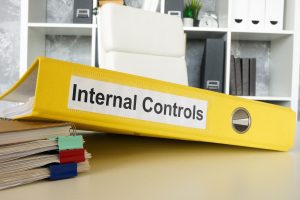So you are worried about employee theft. What business owner these days isn’t? Due to the economic downturn over the last few years, many employees are experiencing the hardest financial times of their lives, and this has most owners looking over their shoulders and ledgers. Most employee theft isn’t done out of greed or malice but rather out of a perceived necessity. Financial pressures can result from high medical bills or vices like gambling or drug addiction. However, this has begun to change as even everyday things like mortgage payments, car insurance, and credit card bills have begun to pile up. Somebody wants their money for that 50” flat-screen TV purchased on a Visa card over a year ago, and when creditors call, employees can often feel the pressure to steal. Fortunately, as a business owner, there are many steps you can take to prevent such theft. Most importantly, employees can only steal where they have the opportunity to steal. Employees who believe they may get caught are far less likely to do so. While many things can be implemented to stop stealing, the most important one is effective internal controls or “checks and balances” in the company’s accounting procedures. This includes, but is not limited to, cash receipts, accounts receivable, payroll, and cash disbursements. Many business owners believe they are too small to have an effective set of checks and balances over their accounting systems but this is not the case. Even seemingly small things such as having the owner sign all the checks, looking over all the detailed support for checks, and receiving and reviewing monthly bank statements, can make a big difference. Looking at some employees, one would never guess if they are stealing or not, and no one wants to accuse an innocent person. However, here are a few “red flags” that an owner may watch for: Unusual employee behavior, such as being more irritable or nervous all the time. Also, avoidance of looking people in the eye.
- Complaints from customers about an employee or their accounts.
- Employees who work excessive overtime or are secretive about their work.
- Missing or incomplete documentation, such as bank reconciliation not being performed.
What should you do if you expect fraud? Contact an experienced forensic accountant, such as a Certified Fraud Examiner, to investigate the situation and, if need be, prepare a report for insurance companies and the authorities. Many police departments don’t have the resources to investigate these types of crimes and rely heavily on Certified Fraud Examiners to collect the needed evidence.




